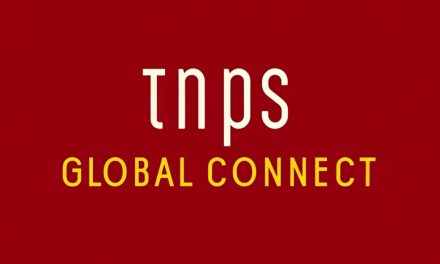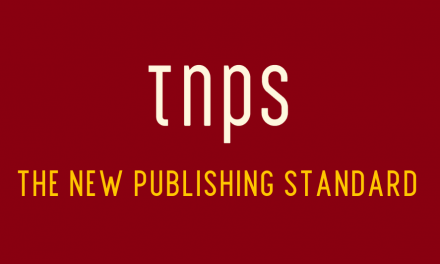Right now, we’re just scratching the surface of the tip of the iceberg that is Africa’s potential book market.
A $5 Billion African Book Market? How They Laughed!
Back in 2019, the International Publishers Association – IPA was in Nairobi, Kenya, for the IPA Africa Seminar where the continent’s book market value of $1 billion was taking many by surprise. That much?!
To mark the occasion, TNPS produced a report showing how Africa might take that value to $5 billion by 2025.
Much ridicule followed, mainly from the west, but also from several African commentators and “experts” who said such a valuation was “pie-in-the-sky“.
At the time, Ngugi Wa Thiongo’o sent a note of appreciation, hoping TNPS would be proved right. Sadly he died a few weeks ago, so I can only hope he was privy in advance to the UNESCO report just published, that values the 2025 Africa book market at $7 billion.
Hey, sometimes it’s great to be proved wrong! $7 billion! And a forecast of $18.5 billion, beyond my wildest dreams back in 2019.
AI Was Still Something You Read About In Sci-Fi Books
But then, 2019 was the publishing industry’s dark ages. Digital had arrived, and formed the basis for the $5 billion TNPS forecast, but this was pre-2022 digital. AI was still something you read about in sci-fi books.
Today, AI is a global phenomenon. Unlike, say, publishing on Amazon, where much of the continent cannot access the Kindle store, AI is available to everyone who has a smartphone, which in Africa is a huge amount of people.
Per Statista in April, Africa currently has over a half billion people online (557 million) and is forecast to exceed 1 billion users by as soon as 2029.
Per discussion below, while I don’t agree fully on UNESCO’s rationale, I think the $18.5 billion target could easily be exceeded as AI gains a foothold on the continent.
First a summary of the 254 page report, and full disclosure: Having ploughed through the whole thing for familiarity (and because I’m a masochist), I then asked AI to summarise it for my own purposes. The following summary is therefore a mixture of the two. Human meets machine. The commentary is all mine, the subtitles all AI’s, and the publishing statistics are UNESCO’s.
Overview of the African Book Publishing Industry
Africa’s book publishing industry stands at a pivotal moment, marked by both significant opportunities and persistent challenges. In 2023, the continent accounted for approximately 5.4% of the global book market, generating an estimated US$7 billion in annual revenue, despite representing 18% of the world’s population. The industry is dominated by educational publishing, which comprises about 70% of the market, reflecting the continent’s large student population and the centrality of textbooks in publishing output.
Sadly it also reflects a “read-to-the-test” education culture that seriously holds back the continent’s potential.
Current and Potential Market Value
- Current Value: Africa’s book publishing industry generated around US$7 billion in 2023, with educational publishing alone accounting for a substantial portion of this figure.
- Potential Value: With appropriate policy measures and investment, the industry’s market opportunities could reach up to US$18.5 billion annually in the coming years, with educational publishing representing a possible US$13 billion.
- Educational Market: The continent’s net student enrolment is approximately 329 million, and achieving a 1:1 textbook-to-student ratio could drive the educational publishing market to US$13 billion, highlighting the scale of opportunity if every student had access to a textbook for each subject. (TNPS Note: I think this is way off – the idea of a 1:1 textbook-to-student ratio is really not at all realistic. Nor necessary. We have to move the debate to where the next generation of African students will spend their time – on the device in their hands. Screen. Audio. Interactive AI. Student textbooks as we know them have a limited future.)
Key Industry Metrics (2023) Per UNESCO
MetricValue:
- Revenue US$7 billion
- Potential Revenue US$18.5 billion
- Titles Published: 86,000
- Publishers: 6,400
- Bookstores:13,000
- Public Libraries: 8,000
- Literary Festivals: 270
- Professional Networks: 200
Some of those statistics are beyond depressing. But we have to focus on the positive: the opportunity ahead.
Keep that in mind as we address more depressing issues raised by the UNESCO report.
Key Challenges to Pan-African and Global Expansion
1. Trade Imbalance and Reliance on Foreign Publishing
Africa faces a significant trade deficit in book publishing. In 2023, the continent imported books worth an estimated US$597 million while exporting only US$81 million, resulting in a 76% trade deficit.
Many African countries remain tethered to European publishing houses, particularly in France and the UK, which limits the development of local publishing capacity and the representation of Africa’s linguistic diversity.
That said, let’s keep in mind this is not deliberate policy to repress African publishing so much as economic realties. The solutions begin in the continent’s schools. A child that cannot read is not going to be a future booklover.
2. Weak Institutional and Legal Frameworks
Only 38% of African countries have a dedicated council or ministerial department responsible for the book and publishing sector, and just 54% have national ISBN agencies. This lack of institutional infrastructure complicates trade, export, and the tracking of published works, while also impeding the enforcement of copyright and legal deposit laws.
3. Limited Financial and Tax Incentives
Most African countries lack structured funding mechanisms for the book industry. While some countries have implemented innovative levy models (UNSCO cites Botswana’s Levy on Technical Devices Fund), 54% of African countries impose standard VAT rates on books, increasing costs for both producers and consumers. Grants and public investment are often one-off and insufficient for long-term industry sustainability.
4. Inadequate Distribution and Access
Book accessibility remains a critical challenge. Africa has about 13,000 bookstores and 8,000 public libraries, but their distribution is highly uneven. For example, Nigeria has only one bookstore per 50,000 people, and South Africa, despite leading in library infrastructure, has one library per 40,000 people. In many countries, libraries and bookstores are concentrated in urban areas, leaving rural populations underserved.
I’d add that here in The Gambia there is literally only one bookshop worthy of the name. Plenty of places sell school textbooks – often imported or pirated copies – but try find a book to read that isn’t to do with school or college…
5. Data Scarcity and Informality
The informality of the sector and the lack of reliable data hinder effective policymaking and industry development. Many countries cannot provide accurate data on the number of titles published or the size of the workforce, and informal publishing practices (including self-publishing and digital serials) are not captured in official statistics.
Which of course means the UNESCO numbers are likely conservative.
6. Linguistic and Cultural Barriers
Africa’s publishing output is dominated by English, French, and Portuguese, with local and indigenous languages largely underrepresented. Only 30% or less of published titles in reporting countries are in local languages, and the actual figure is likely lower across the continent. This linguistic imbalance limits the industry’s ability to reflect and promote Africa’s cultural diversity.
7. Skills Gap and Limited Training
Only 16% of African countries offer dedicated publishing qualifications, leaving much of the workforce dependent on informal training and workshops. This skills gap affects the quality and competitiveness of African publishing, particularly in areas such as editing, digital innovation, and marketing.
8. Digital Transformation and Infrastructure
While digital publishing is growing, adoption remains low in most countries, with digital formats accounting for only 1–2% of total output in many markets.
UNESCO argues that limited access to digital devices, internet connectivity, and digital payment systems further constrain the expansion of e-books and audiobooks.
But per above discussion, there are plenty of people online already – almost twice as many as the USA – and digital players like YouScribe are expanding digital subscription access to books across the continent.
Right now, we’re just scratching the surface of the tip of the iceberg that is Africa’s potential book market.
And here’s the thing: As an Amazon UK account holder I can buy and sell Kindle ebooks, get paid into my UK account and pay to buy books through my UK account. But if I sign out of my UK account I cannot even see the Kindle store.
But I have no need to provide any First World credentials to use the free-level options from ChatGPT, or Copilot or Claude or Gemini or Perplexity or Grok or Mistral or DeepSeek or…
We in western publishing (and every other industry) would do well to remember that AI has not just enabled our own lives, but has enabled the world. And while many of us in the complacent west are tilting at AI windmills for the sake of Luddite soundbites or genuine moral high ground, the rest of the world is jumping on the AI opportunity with no such baggage. And they will reap the rewards.
The Role of AI in Accelerating Industry Growth
AI-Assisted Translation
AI-powered translation tools have the potential to bridge Africa’s linguistic diversity, enabling books to be translated efficiently into multiple local and international languages. This can expand the reach of African literature both within the continent and globally, making it accessible to broader audiences and supporting cross-border trade.
- Examples: Kenya-based Abantu AI leverages AI models for speech-to-text and language-learning applications in local languages, while the ArzEn-LLM in Northern Africa is designed for code-switched Egyptian Arabic–English text.
- Potential Impact: AI translation can reduce costs and time for publishers, facilitate the production of multilingual editions, and help preserve and promote indigenous languages.
AI-Assisted Narration and Audiobooks
AI-generated narration can accelerate the production of audiobooks in multiple languages and dialects, making literature accessible to visually impaired readers and those with low literacy levels. This is particularly relevant in Africa, where 23 countries have ratified the Marrakesh Treaty to facilitate access to published works for the visually impaired.
- Platforms: Ghana’s AkooBooks Audio Akoobooks, Nigeria’s Genti, and Tunisia’s Livox Audiobooks are pioneering audiobook production and streaming in African languages.
- AI Voice Synthesis: AI can create artificial voices with specific accents, enabling the production of culturally relevant audiobooks at scale.
AI for Content Discovery and Market Expansion
AI-driven metadata and content classification systems (such as ONIX and Thema) can improve book discoverability, streamline distribution, and support data-driven decision-making for publishers and booksellers. Enhanced discoverability can help African books reach new markets, both on the continent and internationally.
AI in Digital Publishing and Education
AI can support the development of adaptive learning materials, personalised reading recommendations, and interactive educational content, further strengthen
ing the educational publishing segment. AI-powered platforms can also facilitate the integration of digital content into school curricula and public libraries, expanding access to books in underserved areas.
Strategies for Growth
To unlock the full potential of Africa’s book publishing industry, some strategies arising from the UNECO report include:
- Strengthen Institutional Frameworks: Establish national book policies, ISBN agencies, and book development councils to coordinate industry development and data collection.
- Promote Local Content and Languages: Support publishing in local and indigenous languages through targeted funding, training, and policy incentives.
- Invest in Digital Infrastructure: Expand access to digital devices, internet connectivity, and digital payment systems to support e-books and audiobooks.
- Leverage AI and Digital Innovation: Invest in AI-powered translation, narration, and content management tools to enhance multilingual publishing and global reach.
- Expand Distribution Networks: Improve the distribution of books and libraries, particularly in rural and underserved areas, and support the development of digital platforms for book sales and lending.
- Enhance Skills and Training: Develop formal publishing qualifications and professional development programs to build a competitive workforce.
- Foster Regional Collaboration: Harmonise trade policies and support cross-border publishing initiatives through frameworks such as the African Continental Free Trade Area (AfCFTA).
Above All…
But above all, governments and industry stakeholders need to fully understand that Africa’s book publishing industry is rich in talent and potential, with the capacity to become a key driver of economic development, cultural empowerment, and global influence.
Harnessing the transformative power of AI can position the continent not just as a vibrant and competitive player in the global publishing landscape, but as a leader.
This post first appeared in the TNPS LinkedIn newsletter.





